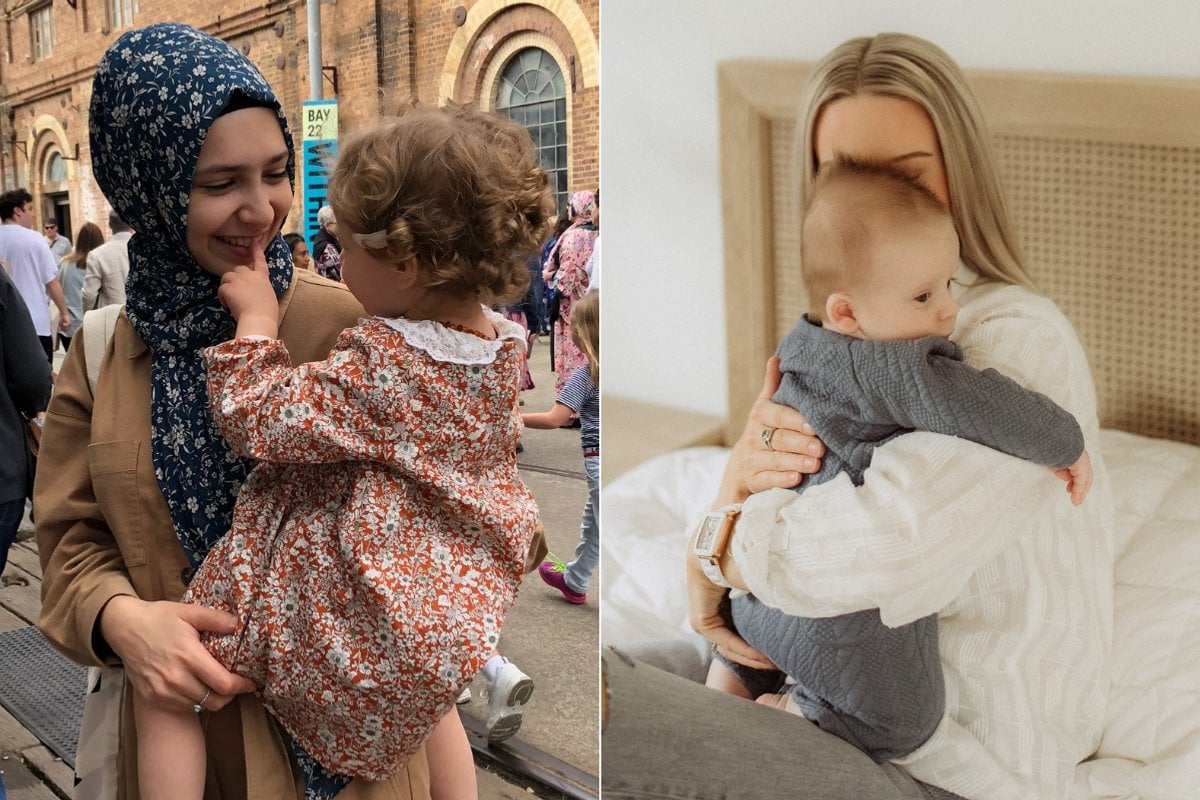
With my firstborn being two years old, I’m still fairly new to this parenting gig.
Having said that, I’ve done my fair share of everything that seems to be earning modern mums brownie points or bragging rights, like sleep training, self-soothing, baby-led weaning, not to mention perusing 87 different 'Insta-mum' pages to find the best Montessori-style activities for age-appropriate stimulation and learning.
For the longest time, I did what I thought was a favour for myself and for the development of my daughter, and I followed every Instagram page I found with a large number of followers and bios that had family emojis, rainbows, the children’s names and ages - and oh, of course, the words ‘play based learning’ in capitals.
Watch: Be a "good" mum. Post continues below.
Many of you would’ve heard the soundtrack that was trending on Instagram reels a while back; ‘Is this friends, are we friends? Oh you’re about to be my friend!’
That was me, every time I found a play-based learning blog with a child roughly the same age as my daughter.
It was fun at first. I mean, there’s only so much you can teach a baby whose biggest accomplishment is learning to roll over.
As she grew, however, so did the need I felt to live up to the standards these influencers were setting, and so began the constant questioning of whether or not the time I was spending with her was ‘good enough.’


Top Comments